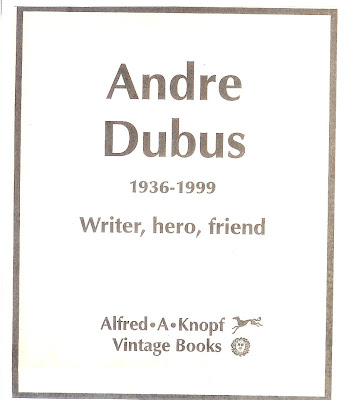 The first time I went back to Exeter after graduating was in the winter of 1994, to attend Mr. Valhouli’s funeral. The enormous gym was full of people, stunned by their sadness, celebrating this wonderful man who had touched so many lives. I remember a hush falling over the packed room as a bearded man in a wheelchair took the podium. His charisma was tangible, his presence authoritative even in silence. He looked up at the ceiling, and suddenly I noticed the streaks of shiny tears on his face. He held his arms out, as though in benediction, and he wailed: “Oh, Vanya! Where have you gone?”
The first time I went back to Exeter after graduating was in the winter of 1994, to attend Mr. Valhouli’s funeral. The enormous gym was full of people, stunned by their sadness, celebrating this wonderful man who had touched so many lives. I remember a hush falling over the packed room as a bearded man in a wheelchair took the podium. His charisma was tangible, his presence authoritative even in silence. He looked up at the ceiling, and suddenly I noticed the streaks of shiny tears on his face. He held his arms out, as though in benediction, and he wailed: “Oh, Vanya! Where have you gone?”
This was Andre Dubus, one of Mr. Valhouli’s oldest and dearest friends. He had come and read to our class in the fall of 1991, while we were carefully reading his Selected Stories. I reread some of the stories this morning and found myself moved again, both by the words themselves and by the layers of memories of Mr. Valhouli teaching me about those words. Andre Dubus himself died in 1999. I will never forget the experience of watching such an impressive, intelligent man, an embodiment of spiritual and physical strength (despite his wheelchair, this was a man whose physicality was unmistakable, who exuded power), demonstrate sheer anguish. His pain was visceral, and we all shared it. I will never forget that moment. Rereading his stories I am reminded that his tremendous courage as a man is behind both his words on the page and that midwinter expression of his emotional pain.
Am thoughtful this morning, thinking about Mr. Valhouli, about the power of words to express, to understand, to communicate, to capture, to heal. I recommend Dubus’ work highly: his stories make me think of Carver, sharing that same combination of spareness and power. It’s fun to reread and find my own underlinings and marginalia. My favorite story is “A Father’s Story,” a compact tale whose dramatic central event is minor compared to the upheaval in a father’s heart. The story tells the reckoning between a man’s faith in God and his love for his daughter. It is complicated and simple, full of gorgeous images that will stay with you, at its heart a parable of the extraordinary relationship between a father and a daughter. Dubus’ own passionate love for his daughters leaks out of every line. He describes in excruciating terms the struggle to bargain, in the darkest moments, between those we love most dearly. A few lines from this story:
But it was more than that: it was womanhood they were entering, the deep forest of it, and no matter how many women and men too are saying these days that there is little difference between us, the truth is that men find their way into that forest only on clearly marked trails, while women move about in it like birds.
It is not hard to live through a day, if you can live through a moment.
I know this from my distractions during Mass, and during everything else I do, that my actions and feelings are seldom one. It does happen every day, but in proportion to everything else in a day, it is rare, like joy.
I do not feel the peace I once did: not with God, nor the earth, or anyone on it. I have begun to prefer this state, to remember with fondness the other one as a period of peace I never earned nor deserved. Now in the mornings while I watch purple finches driving larger titmice from the feeder, I say to Him: I would do it again.
Dubus’ last collection was called Dancing After Hours, and it was dedicated to the memory of James Valhouli. Perhaps because I did not encounter it under Mr. Valhouli’s watchful, prompting eye, I do not feel as close to these stories. It is, however, a beautiful collection that seemed somehow to anticipate Dubus’ passing. The stories are shorter, incandescent, somehow more focused on the life of the heart. It is as though as he neared the end of his own life, Dubus stripped away everything other than what mattered most. The New York Times Book Review blurb on the front of the book says, “This whole collection is suffused with grace, bathed in a kind of spiritual glow…” Only two passages from this book:
What she had now was too precious and flammable to share with anyone.
Then she turned to him, and her eyes amazed him; he was either lost or found, he could not know which, and he surrendered.

